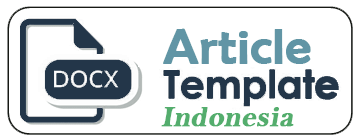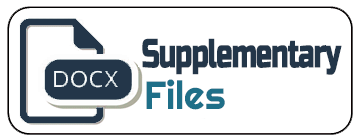Article Retraction & Withdrawal
In principle, the Editor of Nutrition and Health Insights cannot independently decide which articles to publish. In making decisions regarding publication, editors are guided by the policies of the journal's Editorial Board and are constrained by applicable legal requirements regarding defamation, copyright infringement, multiple publications, and plagiarism. Articles that have been published will remain in existence and unchanged for as long as possible. However, under certain circumstances, published articles may need to be retracted or deleted. Such actions are performed only under exceptional circumstances.
The retraction of a published article can be initiated by a journal editor, author, and/or institution. In some cases, retraction should be accompanied by an apology for the error and/or an expression of gratitude to the person who brought the error to the author's attention. The withdrawal of a published scientific article should be accompanied by a statement that the original article may not be reused, and that the data and conclusions may not be used as a basis for future research.
Article Withdrawal
Withdrawal of an article may occur if the initial version of the article contains errors or if the article is accidentally submitted twice to the Journal of Nutrition and Health Insights and/or other publishers. Withdrawal may also result from violations of the scientific code of conduct, such as multiple submissions, false claims of authorship, plagiarism, self-plagiarism, and the deceptive use of data. If the author realizes a violation of the code of ethics, the author can withdraw the article accompanied by a withdrawal statement addressed to the editorial board of the Nutrition and Health Insights Journal.
Article Withdrawal
A retraction is made if the article violates the scientific code of conduct, such as multiple submissions, false authorship claims, plagiarism, the use of false data, or false authorship claims. Retraction is also used to correct errors during submission or publication. Article retractions can be made by the author or editor based on the advice of the editorial board. The forms of retraction in the Journal of Nutrition and Health Insights include the following:
- If violations of the scientific code of ethics are indicated before the article is published, the editor will return the manuscript to the author, accompanied by a withdrawal letter from the Editor-in-Chief.
- If violations of the scientific code of ethics are indicated after an article is published, several mechanisms can occur.
- The online articles were preceded by a screen with a note of withdrawal. The readers can proceed to the original article after seeing this note.
- The original article remains unchanged unless there is an awatermark on the PDF file, indicating that the article has been retracted.
- The HTML version of the document was removed.
Article Deletion: Legal Restrictions
In a very limited number of cases, it may be necessary to remove articles from the Nutrition and Health Insights Journal’s online database. This will only be done if the article is clearly libelous, has a hoax, infringes on the legal rights of others, or poses a national security risk. In these situations, the metadata (Title and Author) will be retained, while the text will be replaced with a screen indicating that the article has been removed for legal reasons.
Article Replacement
In cases where a published article may pose a serious risk if used, the author of the original article may withdraw the defective article and replace it with a corrected version. In this case, the retraction procedure will be followed, with the difference being that the retraction notice in the database will contain a link to the corrected article and document history.








